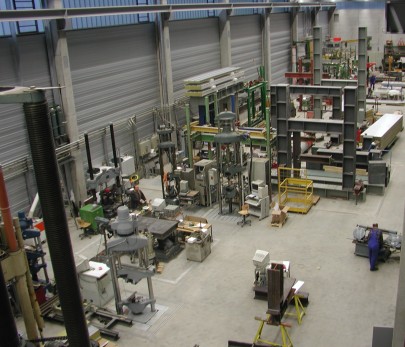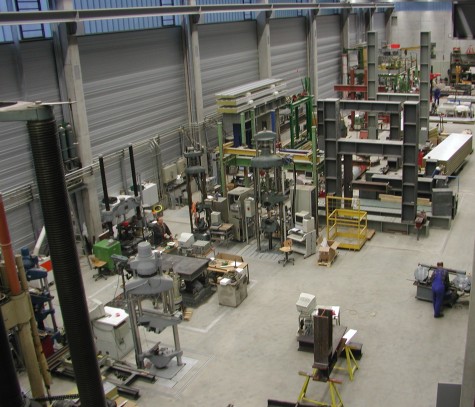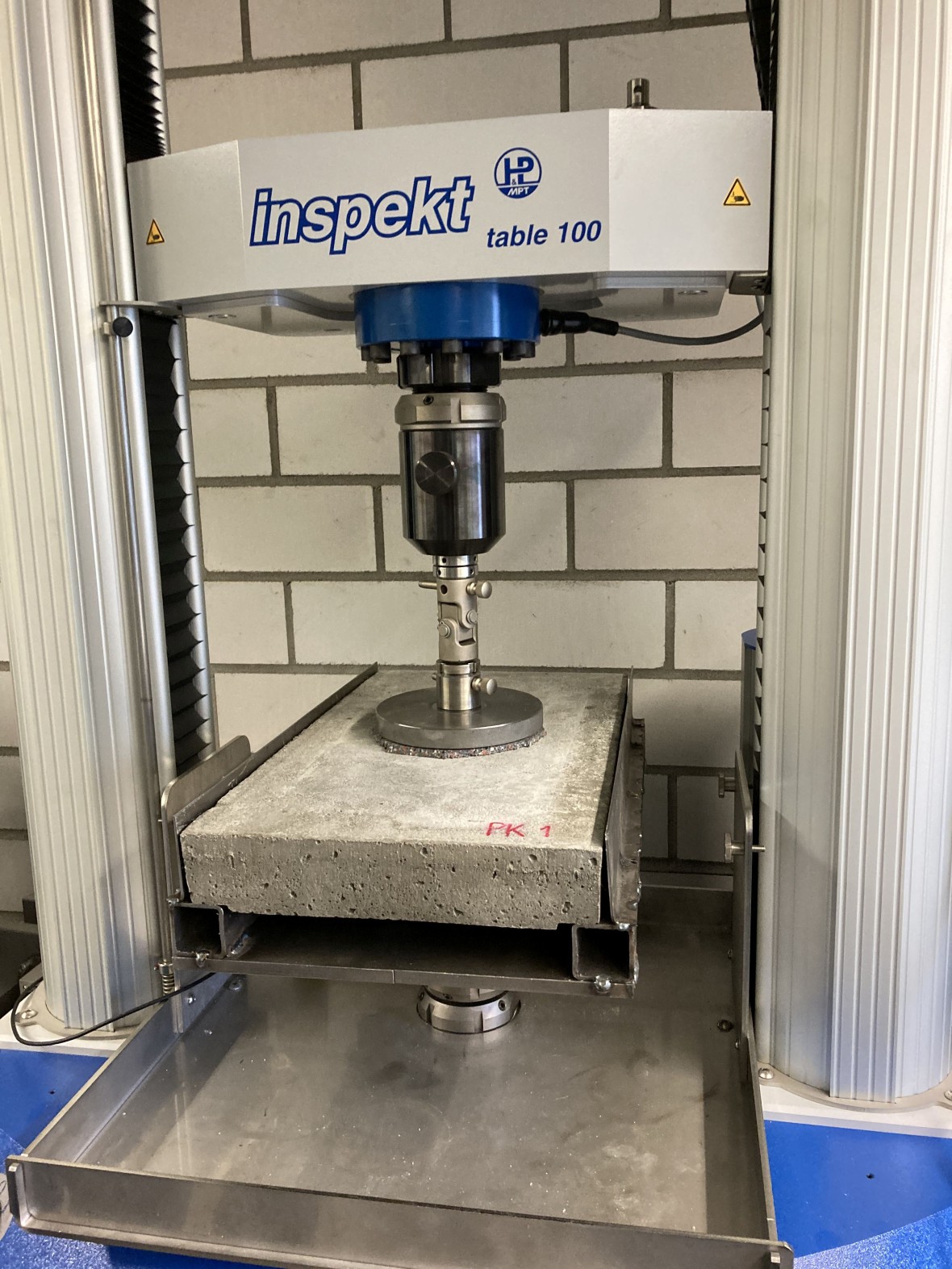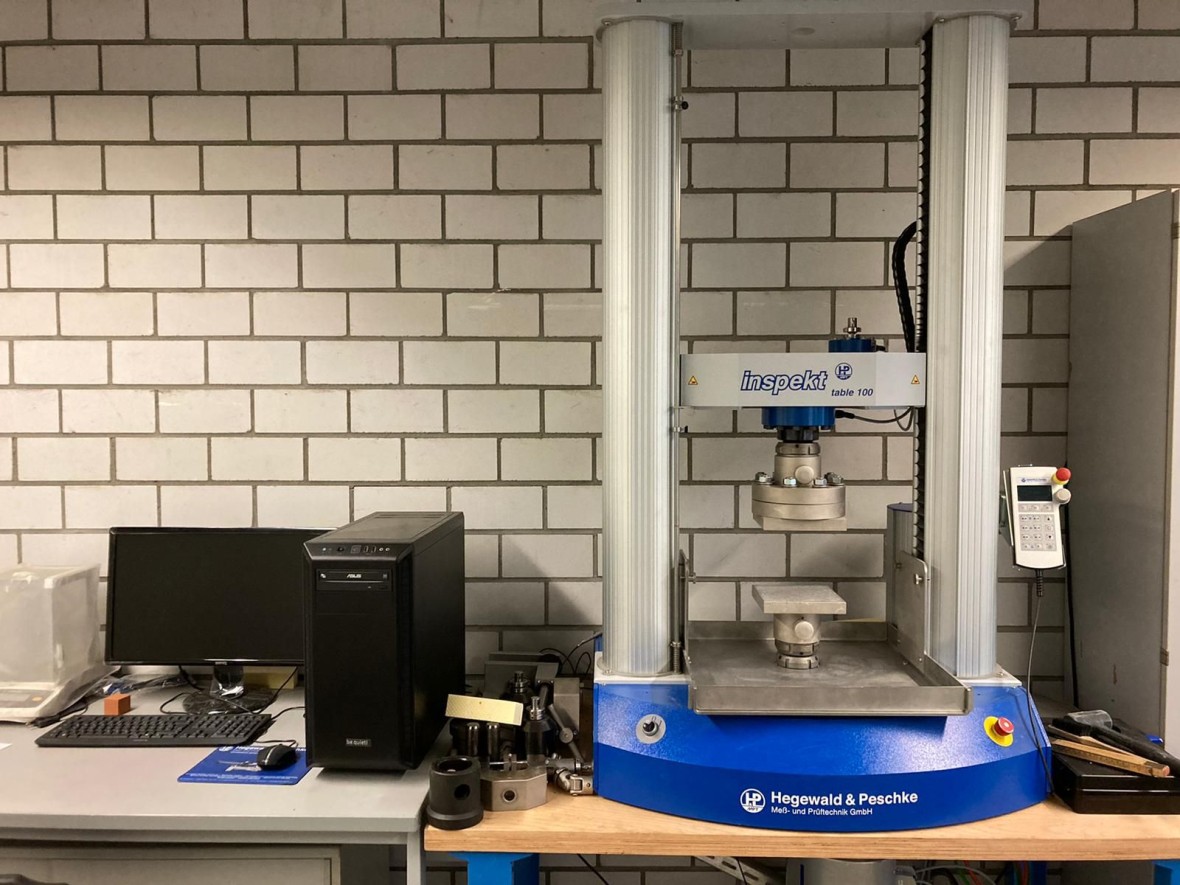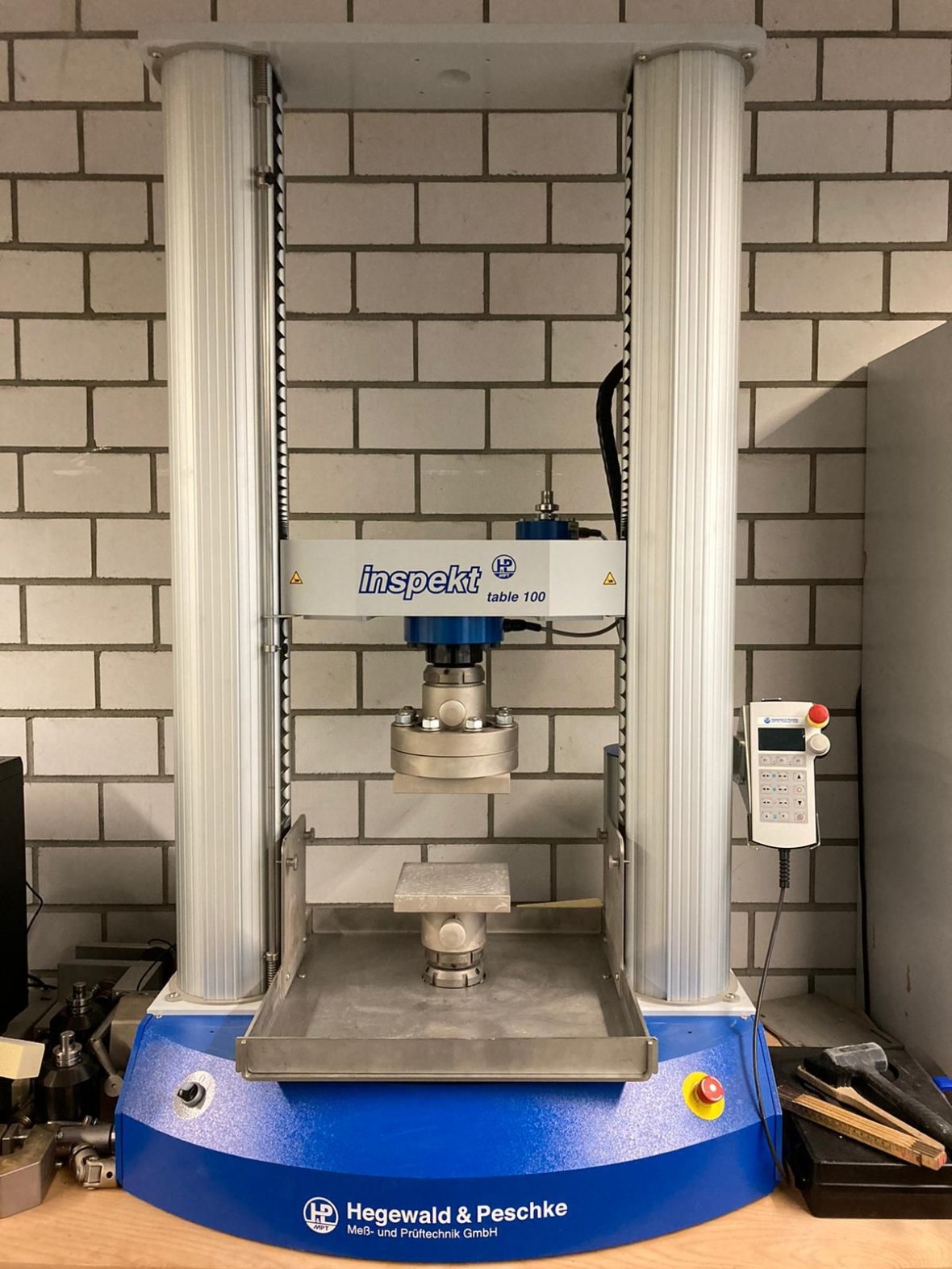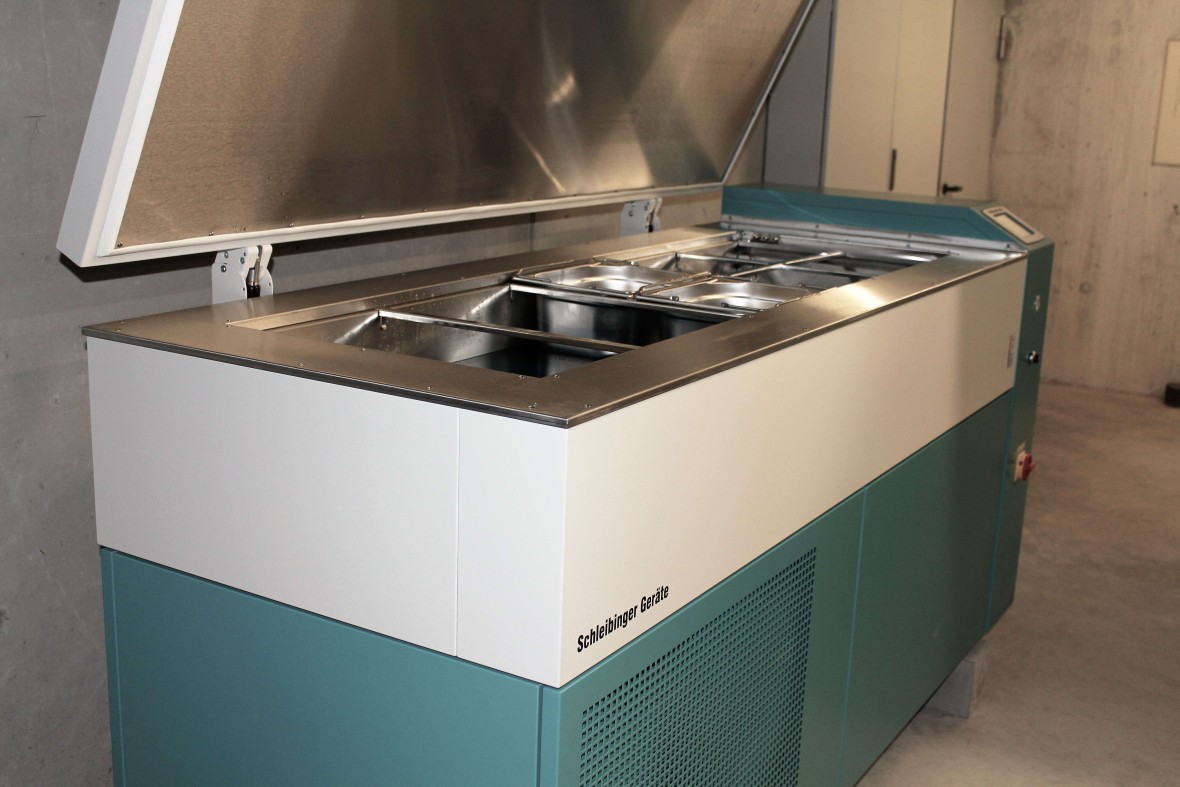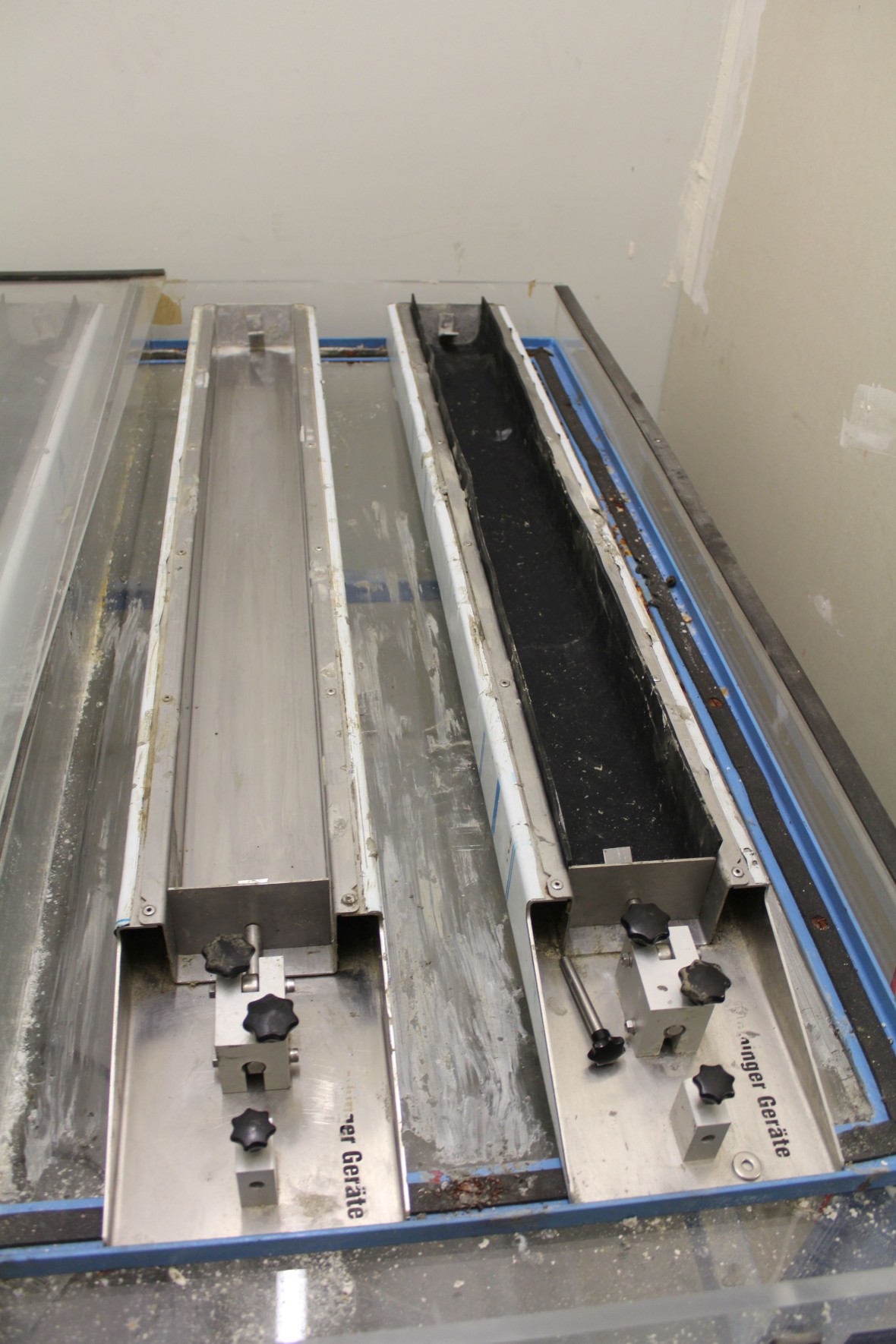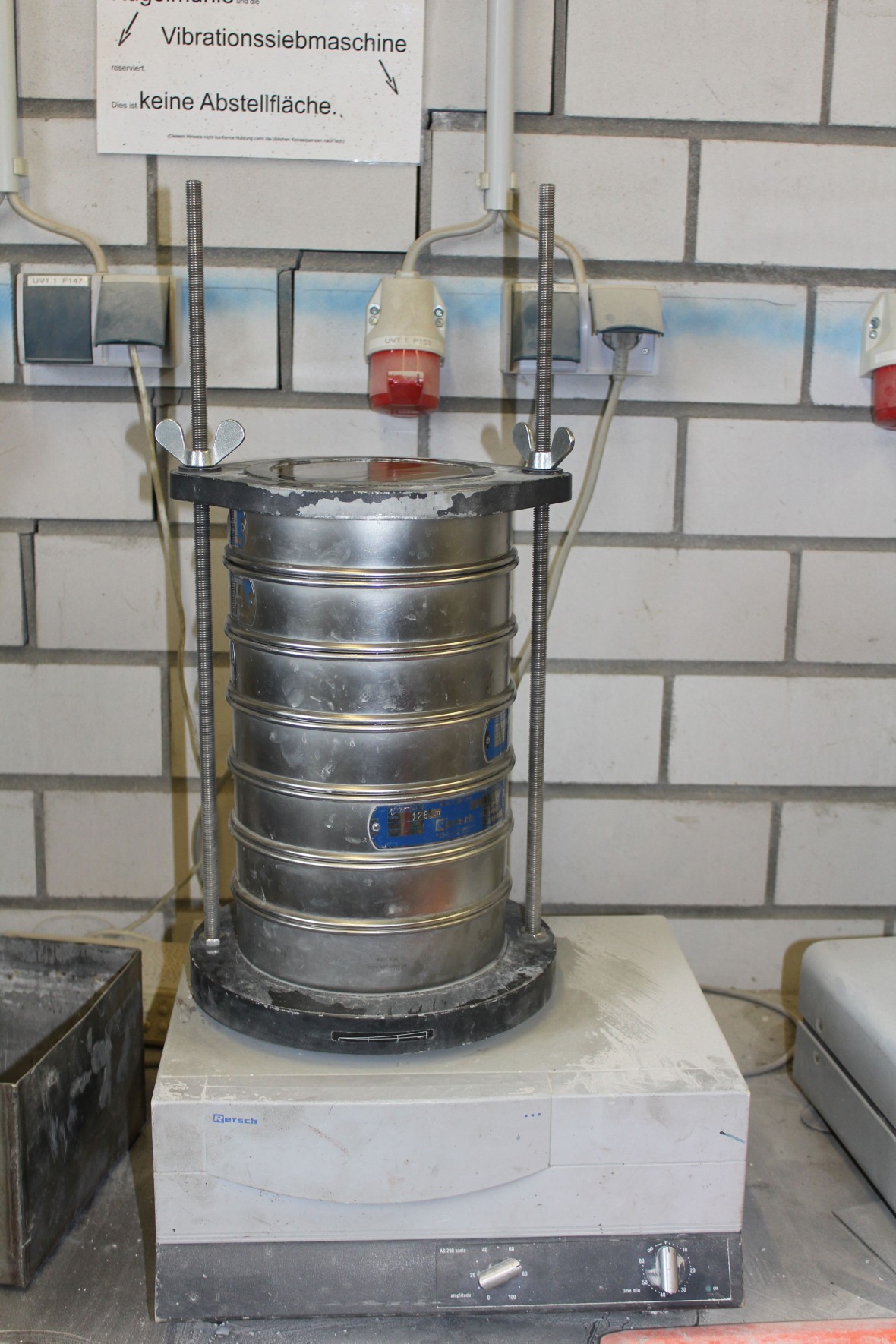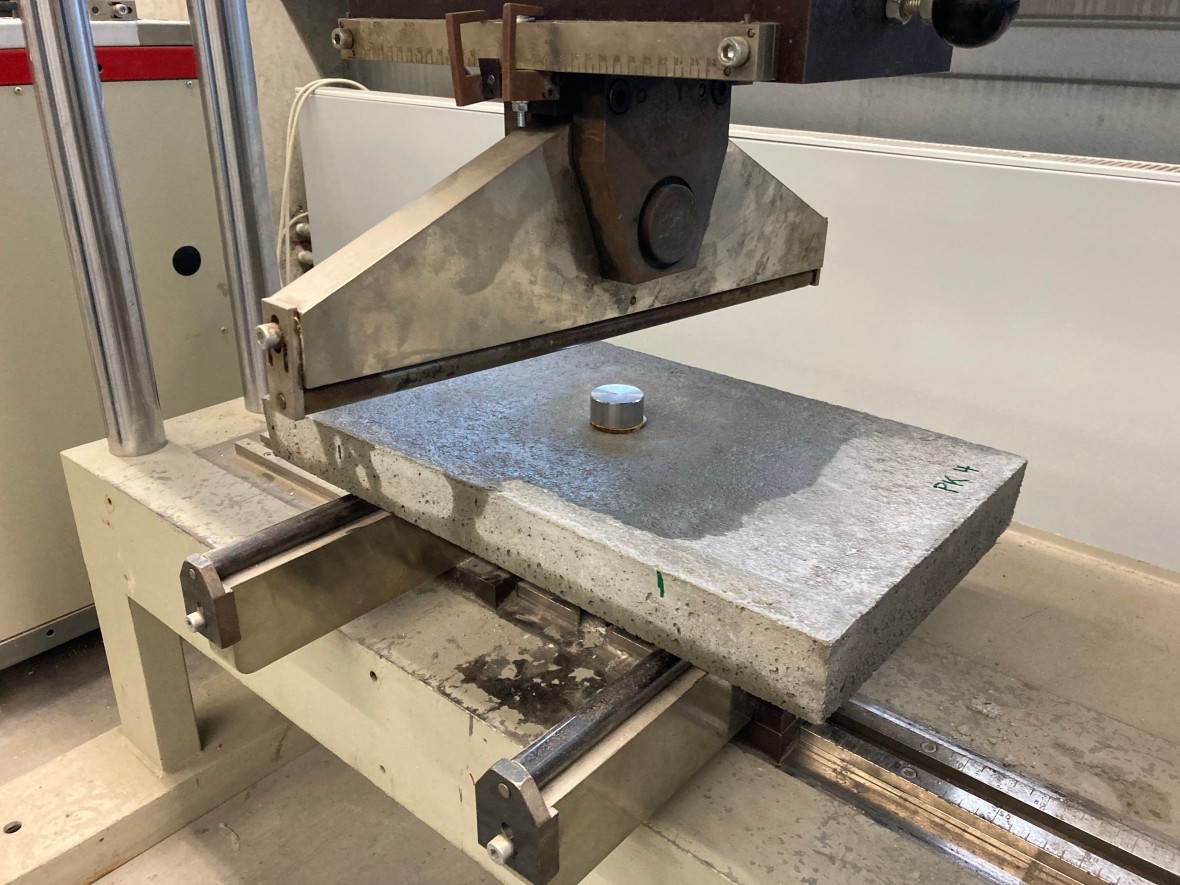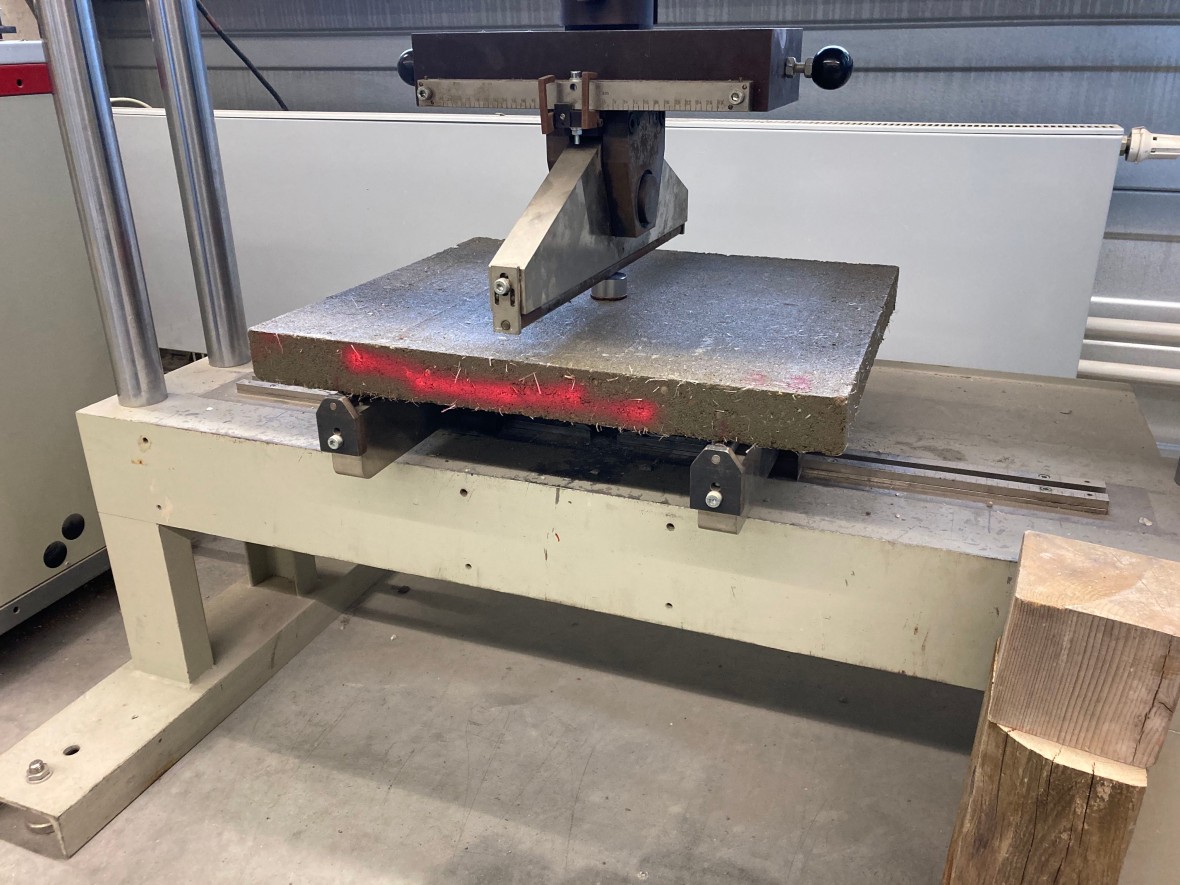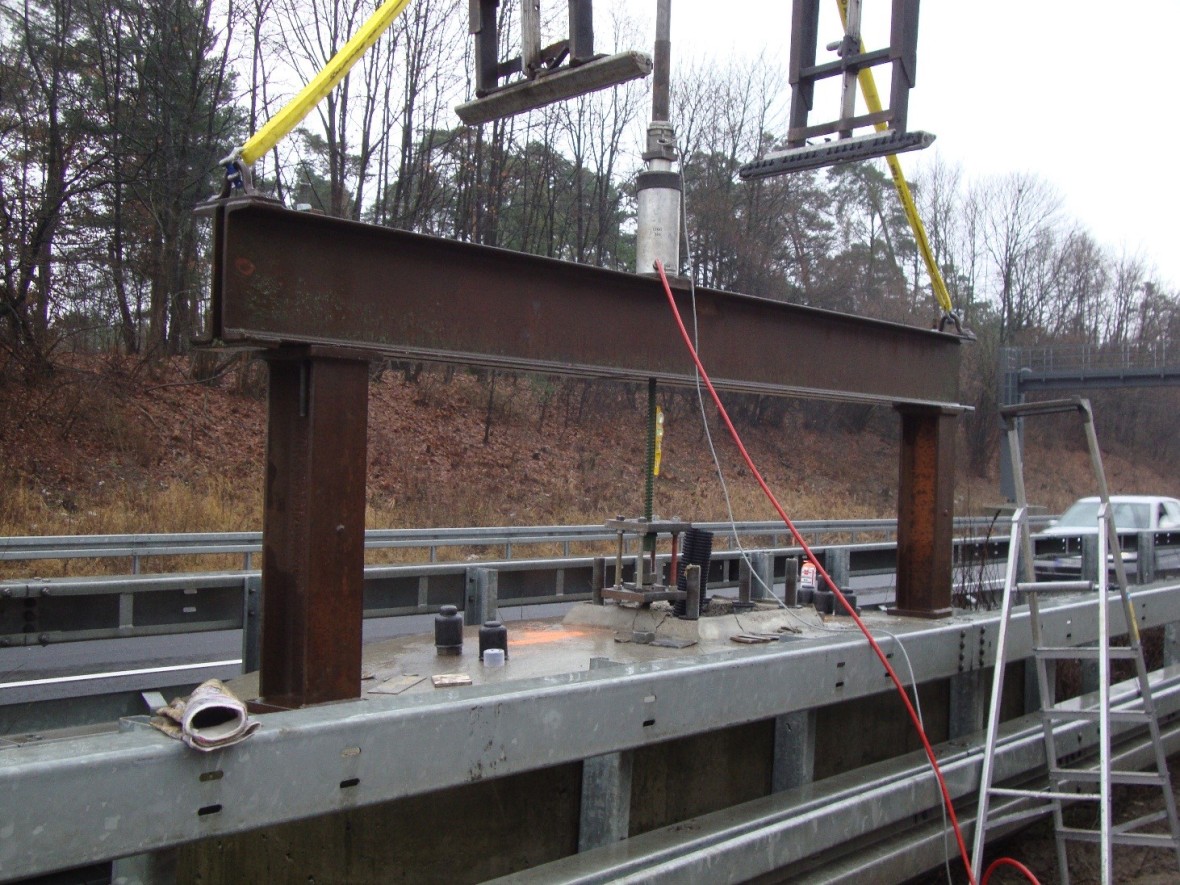Universal testing machine
Model:
Inspekt table 100 from Hegewald & Peschke
Brief description:
With the compression testing machine Inspekt table 100 from Hegewald&Peschke, in addition to the usual standard tests for testing the compressive strength of cubes and cylinders according to DIN EN 12360-3, and the testing of the compressive strength of mortar prisms according to DIN EN 196-1, as well as the determination of the bending tensile strength with the three-point bending tensile method, further non-standardized tests can be carried out. Furthermore, tensile tests up to 20kN can be performed.
Various attachments, load cells and a displacement or force control together with the testing software allow test programs for different application investigations.
Testing possibilities according to:
DIN EN 12360-3, DIN EN 196-1, DIN EN 124-1 and others
Freeze-thaw test system
Model:
CDF/CIF-Prüfanlage from Schleibinger Geräte GmbH
Brief description:
A CDF/CIF test facility can be used to evaluate the resistance of concrete to freeze-thaw and freeze-thaw loads. For this purpose, specimens stored in a test liquid are subjected to defined, cyclic freeze-thaw stresses. The external damage (weighing of the weathered material) and the internal damage (measurement of the ultrasonic transit time through the specimens) are determined at regular intervals.
- Temperature range: -20 °C to +20 °C
- Control deviation: < ± 0,5 °C
- The temperature profile is freely adjustable
- Equipped optionally with 10 or 15 specimens
Testing possibilities according to:
Execution e.g. according to RILEM CDF/CIF-Test, CEN/TS 12390-9, CEN/TR 15177, DIN EN 13581, BAW Merkblatt Frostprüfung von Beton, ASTM C666 Part A and ÖNORM B3303 possible
Shrinkage drains
Model:
Schwindrinnen von Schleibinger Geräte GmbH
Brief description::
During shrinkage, the volume of the concrete or mortar decreases. This leads to the formation of cracks. This occurs over long periods of time as a result of moisture release, chemical reactions or structural transformations during the curing process. Since this is an undesirable but often unavoidable process, its measurement and classification, as well as the development of possible countermeasures, is essential.
With the help of the shrinkage trough, the shrinkage can be measured very accurately over very long periods in real time. A data logger can autonomously record the data via measuring probes at the ends of the shrinkage trough.
- 1000 mm specimen length
- Measuring range up to 5 mm
- Resolution 0,3 µm
- Accuracy > 2 µm
Testing possibilities according to:
a.o. according to OENORM B 3329:2009-06-01, ASTM C 1581-09a, ASTM C 827-95a, EN 12617-4:2002
Sieve Analysis
Model:
Test Sieve Tower AS 200 basic from Retsch
Brief description:
With the sieving of raw materials, a grain size determination can be carried out. This allows, among other things, to produce specially desired or required grading curves from an aggregate or to carry out quality control.
- Measuring range 20 µm bis 25 mm
- Wet and dry sieving
- Separation, fractionation and particle size determination
Testing possibilities according to:
a.o. according to DIN 66165, DIN 18123
Devices and tests in the meso and macro laboratory
Part of the macro laboratory are among others:
- Endoscope (Storz)
- Adhesion tester (DYNA screed)
- Hydraulic cylinders of various sizes for laboratory and in-situ tests
- Various force-controlled compression, tensile and bending tensile testing machines



